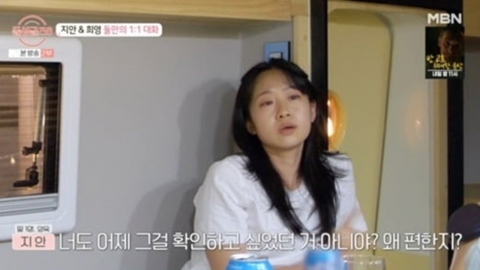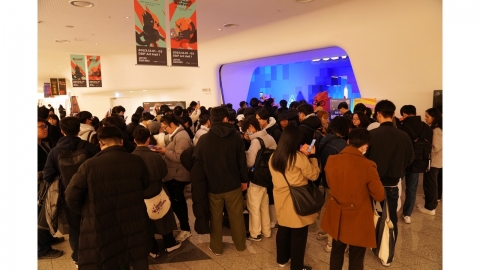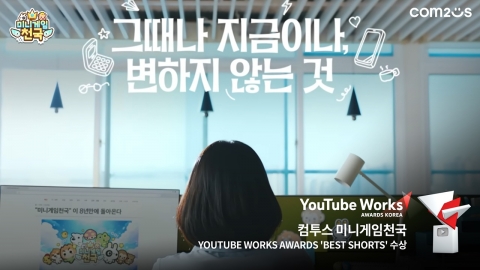■ Starring: Attorney Kim Sung-soo
* The text below may differ from the actual broadcast content, so please check the broadcast for more accurate information. Please specify [YTN News UP] when quoting.
[Anchor]
Let's take a closer look at the news of the major incident with lawyer Kim Sung-soo. Welcome. The first case to be dealt with is the body of a woman in her 30s found in the Bukhangang River in Hwacheon, Gangwon Province. When a fairly harrowing body was found, the police went after it, and they caught the suspect last night?
[Kim Sung-soo]
That's right. To briefly explain in chronological order, on November 2, at around 2:46 p.m., a damaged body will be found downstream of the Hwacheon Bridge near the Bukhangang River in Hwacheon, Gangwon Province. And since the condition of the body has been damaged a lot in this regard, it was reported that there was a question about whether it was a body from North Korea or a body suspected of crime in Korea. After that, around 10:30 a.m. on November 3, additional vinyl handles were lifted around the nearby dock, and a little more bodies were secured in the process. So, in this situation, the police arrested the suspect after judging that there were criminal charges in this part, and around 7:12 p.m., a man in his 30s was arrested as a prime suspect in the underground road of Ilwon Station in Gangnam-gu, Seoul.
[Anchor]
It is said that the DNA test results may come out today, but the suspect was caught immediately after it was reported. The investigation was conducted quickly.
[Kim Sung-soo]
It seems that various investigations have been conducted quickly, but since the suspect was identified through on-site investigations and CCTV investigations at the time and the arrest was carried out quickly, this could be more advantageous in grasping the facts, and it seems that it will help to grasp the facts in various ways.
[Anchor]
But they say the suspect is an active-duty soldier. Is there any relationship between the two of you right now, a motive for the crime, or anything like that?
[Kim Sung-soo]
So far, it is assumed that they are acquaintances.It appears to have only been confirmed, and both of them are known to have lived in an area other than that area where the body was currently found. Therefore, I think the current motive, method of crime, and circumstances will be revealed through additional investigations.
[Anchor]
If this suspect's charges are proven now, can he disclose his personal information?
[Kim Sung-soo]
It's said that they're reviewing it, but isn't there a related law that needs to be disclosed in this regard? If there is a need to disclose personal information under this related law, the committee may be convened and held, so we will have to wait and see in that regard.
[Anchor]
And there is also a case of perpetual murder that was reported over the weekend, so I will look into it. It happened in Eunpyeong-gu, Seoul, and a son in his 30s killed a father in his 70s. He was eventually arrested, right?
[Kim Sung-soo]
That's right. On October 27th of last month, I heard that my son in his 30s hit his mother and killed my father with a blunt instrument, and wasn't there a crime on the 27th? On the 31st, he attempted suicide with his mother and attempted an extreme choice, but after failing, he turned himself in to the police. So, on November 1st, the Seoul Western Police Station applied for an arrest warrant, and the investigation is currently being conducted with the court arrested for fear of escape.
[Anchor]
The son responded to a reporter's question about the motive of the crime before the investigation of the arrest warrant proceeded. I'll look at the screen for a moment and come back.
[Anchor]
Of course, if true, wouldn't it be very tragic that the victim of domestic violence eventually became the perpetrator of the murder? There are cases where domestic violence problems accumulate for a long time and eventually lead to other crimes, and I heard there are many similar cases like this?
[Kim Sung-soo]
That's right. This case is also known to be a household where there were actual reports of domestic violence in 2017 and 2021. As a result, there seems to be a story about whether domestic violence was the cause, and as you said, there are many cases like this as well as reported in the news about domestic violence, so there is a need for a revision of the law. The Domestic Violence Punishment Act was enacted in 1998. However, I think it's time to think again about the reason why we haven't been able to prevent such a tragedy even though it has been revised several times since the actual fact.
[Anchor]
There was a similar case trial a few weeks ago, and last August, a grandson in his 20s killed his grandfather. This was also a domestic violence problem, right?
[Kim Sung-soo]
That's right. The grandchild who murdered his grandfather last August now has his first hearing recently. It seems that the witness questioning was conducted during the trial. At that time, a grandfather in his 70s assaulted his grandmother or did something like this about the motive of the crime, leading to a crime in this part. At that time, there were various opinions on domestic violence.
[Anchor]
So, if you look at the events you've explained in common, it's a tragic thing that leads to crimes that you can't undo after suffering from violence for a long time, and I think there must have been a way to prevent this before it happened. What do you think?
[Kim Sung-soo]
As I said, isn't the Domestic Violence Punishment Act enacted and enforced? So here, we can do this, whether we separate the perpetrator from the victim, or we have access restrictions, as a temporary measure. According to the law, the prosecutor must respect the victim's will in disposing of temporary measures in Article 9, and if the victim withdraws from these areas, temporary measures are not allowed, but in the end, there are talks about whether such accidents will continue to occur because there is no coercion in this area, and even if there is a coercion, there may be restrictions or period restrictions on this area. Therefore, in this regard, there is a saying that it is necessary to prevent more damage from the victim's point of view.
[Anchor]
Is this called anti-indictive punishment?
[Kim Sung-soo]
There are two crimes: anti-intentional punishment and pro-accusation, and in the case of pro-accusation, it can only be punished if there is a complaint, and in the case of anti-intentional punishment, it is not punished against the will. However, in this case, the same thing can be considered similar because it means that if it is actually against the will, we will not take temporary measures.
[Anchor]
If so, didn't you become the perpetrator of the extreme crime anyway? I wonder what the punishment will be like in this case, but if the parts that the family has experienced domestic violence all their lives are proven, as in the previous case, does this also affect the sentencing judgment?
[Kim Sung-soo]
First of all, our criminal law distinguishes between general murder and perpetual murder, and in the case of perpetual murder, it is punished even more. However, based on the sentencing criteria, the sentencing criteria for murder are divided into five types for murder. So, there are five types of motives, such as considered motives, ordinary motives, and accusatory motives, and if there was a situation that continued to be damaged, there is a possibility that this will go to considered motives.
And in the case of persistent murder when that happens, it is included as a weighting factor. Therefore, in the case of a reasonable motive, a certain sentence is basically sentenced, but there was a reason to take this into account in this regard. And if the victim did this and said it caused it to some extent, that part will be a mitigation factor. And since this part of the persistent murder will be a weighting factor, the court will consider this part and sentence it.
[Anchor]
But in the case of domestic violence, it's very private, so it won't be easy to prove it from the outside, but is testimony helpful? [Kim Sung-soo] If the testimony of the family members who were together at the time is the only part that can grasp the facts, we may have no choice but to specify the facts through that part. However, even if it is not, it is a little difficult to judge only by statements because there are parts where facts can be specified through loud noises nearby or crime tools.
[Anchor]
And let's look at another case. This is also a mysterious case, and my son turned himself in to the police for hiding the body of his dead father in a freezer for more than a year. What's going on?
[Kim Sung-soo]
This is an incident where I recently turned myself in on the 1st. Recently, a man in his 40s came to the police station in Icheon, Gyeonggi-do, to turn himself in. But what it was about was that my father died a long time ago, and I keep his body in the freezer in his house. That's why he stated that he hid the body. As a result, the actual police went to check, and the body was actually found in the freezer, and the investigation is currently being conducted on charges of concealing the body, and even if there is a cause of death, there may be additional criminal charges, so the cause of death is also understood.
[Anchor]
So what we've learned so far is that my father died, as this man said, and I just kept it in the freezer. You're saying there's no suspicion of murder yet, right?
[Kim Sung-soo]
That's right. In the case of this man, it is known that he is now saying that his father visited his house and he was gone. So, if you actually die from a natural disease or something like that, there may be no criminal charges in this part, but you haven't yet figured out the cause, have you? Therefore, if there is another cause, there is a part to find out about the criminal charges, so we are also checking how he died.
[Anchor]
According to YTN's exclusive report, his son stated that he hid his father's death because of property problems, but then he's only accused of concealing the body as you said. What will be the punishment in this case?
[Kim Sung-soo]
First of all, in the case of corpse concealment, imprisonment for up to seven years is stipulated. However, if you hide this fact due to property issues, there may be a related law on this part. If there is a penalty clause in violation of the relevant law, the penalty for that part can also be considered. You said it's a property problem at the moment, but you don't know what property problem it is, do you? That's why I think it's also important to figure out what the property problem is.
[Anchor]
And let's point out that the police will conduct a special crackdown on drug driving. Everyone will be familiar with the drunk driving crackdown, but I've never heard of a special crackdown on drug driving. Did this happen?
[Kim Sung-soo]
Don't you have a lot of drinks at the end of the year? In that case, there is a high possibility of driving under the influence of alcohol for about two months. However, in this case, the crackdown period has been extended to about three months, and as you said, we will crack down on drug driving, so we are also interested in this.
[Anchor]
They say this is the first time the police have cracked down on driving under the influence of drugs, but I'm curious about the way. I don't think drugs will be detected just because they breathe in like drunk driving, and how will they be tested?
[Kim Sung-soo]
When looking at the current police briefing data, there is a simple inspection kit. So, if you put saliva, or saliva, in the simple test kit, it is absorbed by the sponge, and if there is a positive drug test in a part after it is absorbed by the sponge, it seems to be a system in which a positive drug test comes out. It is not yet known exactly how accurate there is in that regard, so we need to wait and see about that.
[Anchor]
However, the problem is that there is a loophole in cracking down. Don't the police have the authority to forcibly measure drunk driving? Is it true that drug measurements are not compulsory?
[Kim Sung-soo]
In the case of a breathalyzer test, it is called a non-compliance with the breathalyzer test. Therefore, in Article 148-2 of the Road Traffic Act, if you refuse to comply, you may be punished if you are expected to have drunk driving. Therefore, it stipulates imprisonment for more than one year or less than five years, or fines of more than 5 million won or less than 20 million won. If you refuse to comply with drug driving or drug driving, there are no regulations that allow criminal punishment, so even if you get a warrant and inspect it later, you may not be able to arrest it at the scene. If you can't arrest him at the scene at the time, isn't there a big part where other victims can eventually occur in the process of driving, whether it's drunk driving or drug driving? Therefore, there is a story about whether there should be any effective revision of the law on that part.
[Anchor]
I think we can expect only alarming effects for now, but I told you in the report a little while ago.Ma is still slow to come up with related legislation in the National Assembly. What kind of punishment will I get if I get caught driving after taking drugs such as drugs?
[Kim Sung-soo]
First of all, it could be punished for violating the Narcotics Control Act. In this regard, as I said, the Road Traffic Act stipulates imprisonment for up to three years or a fine of up to 10 million won for driving by drugs or drugs. Some say that the actual risk is similar to drunk driving. In the case of drunk driving, if it is more than 0.2 years, imprisonment for more than two years, or a fine of more than 10 million won, or less than 20 million won, is very serious.
Therefore, there are some stories that say that there should be a revision on this part as well. In addition, if an accident occurs while driving with drugs and results in injury or death, there is a part that can be punished in the same way as drunk driving under the Special Price Act. However, since it can be punished very seriously in this regard, I think I have to say a little about this.
[Anchor]
You mentioned a while ago that you would test through a simple kit, but if so, there are so many different types of drugs and new ones, but I don't think there are many cases where they don't come out as a simple kit. If there is a dispute about accuracy, this can be seen as a homework to be solved in the future, right?
[Kim Sung-soo]
As you said, this is the first time to crack down on drug driving itself, so if the simple test kit itself can be detected even when other drugs are used or not illegal in Korea, there may be disputes about whether administrative disposition or criminal punishment itself is illegal for the results of the crackdown, and in drunk driving, there are many disputes over the ability of evidence such as refusal to measure alcohol or blood collection for drunk driving.
Therefore, if there are many trials for drug driving in the future, the ability of evidence and the reliability of the simple inspection kit can also be an issue, so isn't there a standard for revision of the law or police measurement and crackdown in preparation for this? I think we should prepare that part.
[Anchor]
And let's move on to the last issue. These days, there is a lot of talk about Namuwiki, an online knowledge information site, but there is a lot of false information, right?
[Kim Sung-soo]
A site called Namuwiki provides a wide variety of information about certain information. It provides information, and the method of writing that part is a collective intelligence method, so everyone who can write it is open. The part that can be stated about this topic, such as a person, an object, or this part, as an objective fact, and the part that can be written can be self-reflected through collective intelligence, so the part that cannot always be considered correct can be a problem.
As a group, if we ask to use this part of information as a lie, it can be written as a lie, but there may be parts that cannot be changed, and in this regard, we defamed others. In this case, it is difficult to know who wrote it, and Namuwiki is not a domestic corporation, but an overseas corporation. Then, if an overseas corporation does not provide information on members or such, practical punishment may not be possible, so there are various controversies related to this.
[Anchor]
In short, posting co-written posts is Namuwiki, but I also have information about myself or people I know personally. There are times when information that I know for sure is completely wrong. I think this could be misleading for kids who are not sensible, what do you think of concerns about this?
[Kim Sung-soo]
First of all, even if it's written in Namuwiki, I think we need to distinguish that it's not an objective fact. In that regard, we need to think about ways to alert you several times. And as I said now, the corporation itself is an overseas corporation, called Umanle, and it is known as a corporation in Paraguay, South America. Therefore, if you don't cooperate when you ask for cooperation in this regard, I think it's necessary to consult with the corporation to some extent because now even site blocking and such things are being discussed.
Isn't there anyone who has the right to rightfully correct this part if there is an incorrect material? Like yourself. Then, such areas can be changed in such cases through consultation. And if a defamation post is posted, I think we should also discuss the part that can be deleted if an individual requests it.
[Anchor]
As you said, the problem of false information is so serious that there are even voices saying that the site should be blocked at all, but the people writing here say that I didn't try to defame this person or spread false information, I think punishment will be difficult. In such a situation, there will be criticism that if you just block such sites, it could lead to censorship, what do you think of this?
[Kim Sung-soo]
I think it eventually becomes an issue because of that part. Isn't censorship naturally blocked from accessing illegal sites in Korea? However, in the case of Namuwiki, whether it can be considered illegal is inevitably an issue, and through various discussions, if it is something that the people can accept, some blocking or such can be considered, but if it is something that cannot be accepted, I think we should find improvement through other methods.
[Anchor]
I see. We talked a lot. That's all I have to say. I was with lawyer Kim Sung-soo. Thank you.
※ 'Your report becomes news'
[Kakao Talk] YTN Search and Add Channel
[Phone] 02-398-8585
[Mail] social@ytn. co. kr
[Copyright holder (c) YTN Unauthorized reproduction, redistribution and use of AI data prohibited]
Society
More- Lee Woong-yeol, honorary chairman of Kolon, is not guilty in the first trial of "Suspicious Invossa."
- "I'm out of car" asked for help..."SUV Club" dispatched through heavy snow.
- "Give me back the old KEPCO site"...Bongeunsa's defeat has been confirmed.
- "My house, too?" More than half of foreign landlords are Chinese.
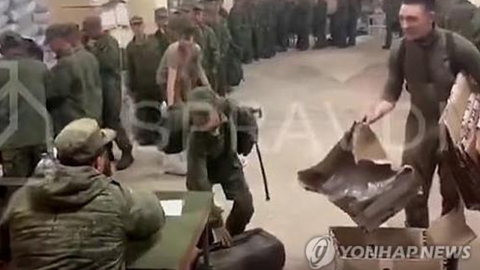
![[Exclusive] Workers crash at Lotte Hotel World...one dead and one seriously injured](https://image.ytn.co.kr/general/jpg/2024/1129/202411291023597932_h.jpg)
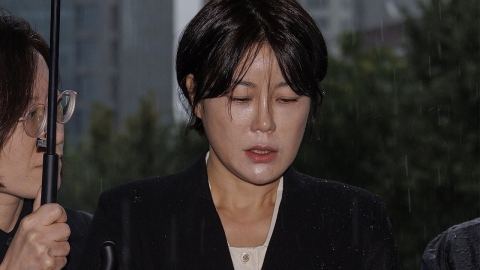
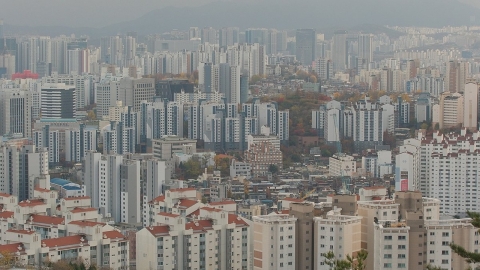
![[Focus Y] "Why aren't you doing anything for me?" vs. "I did everything for you". The workshop.](https://image.ytn.co.kr/general/jpg/2024/1129/202411291034040696_h.jpg)

